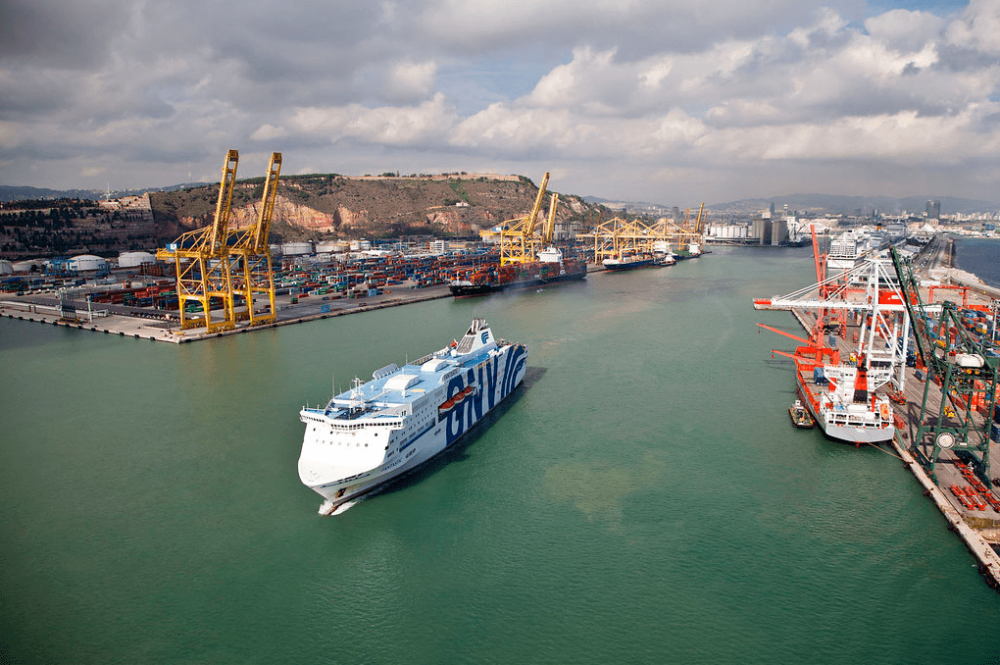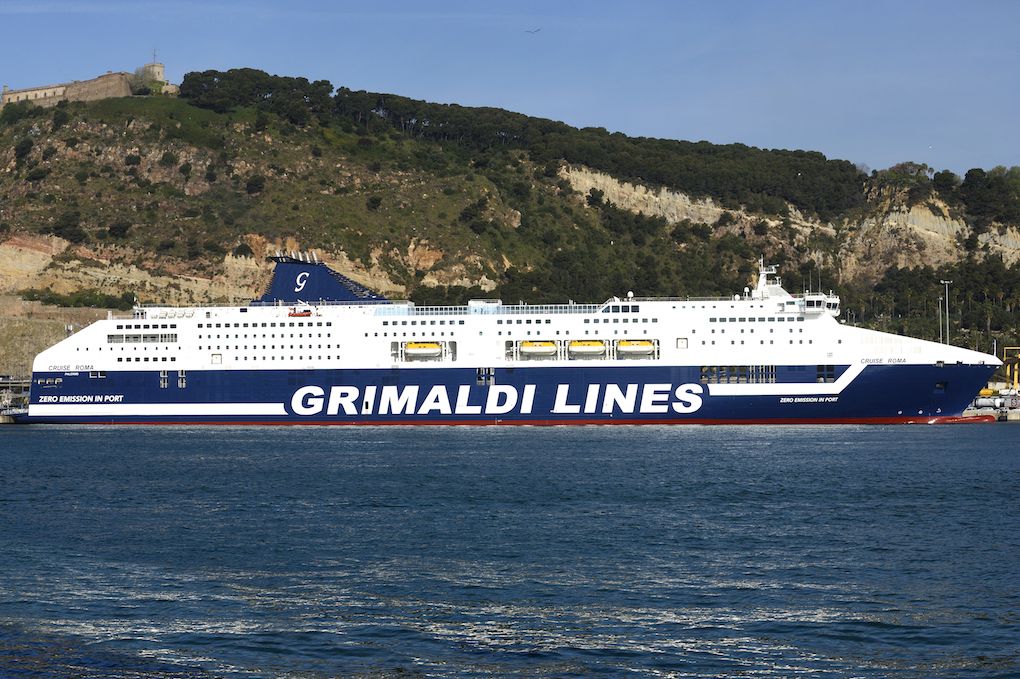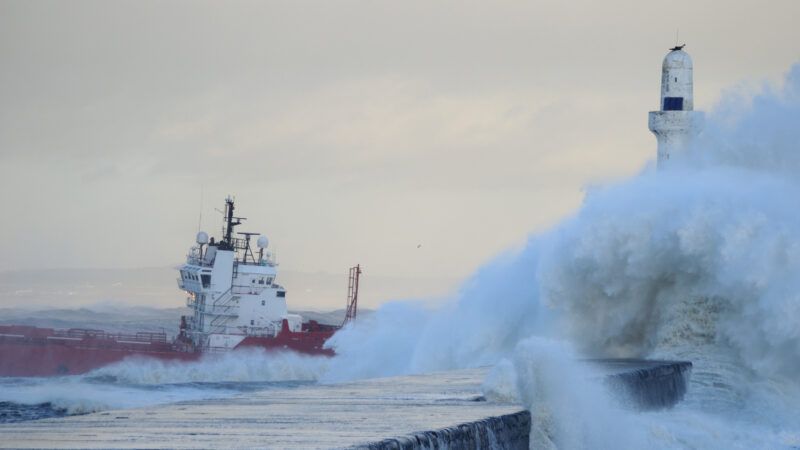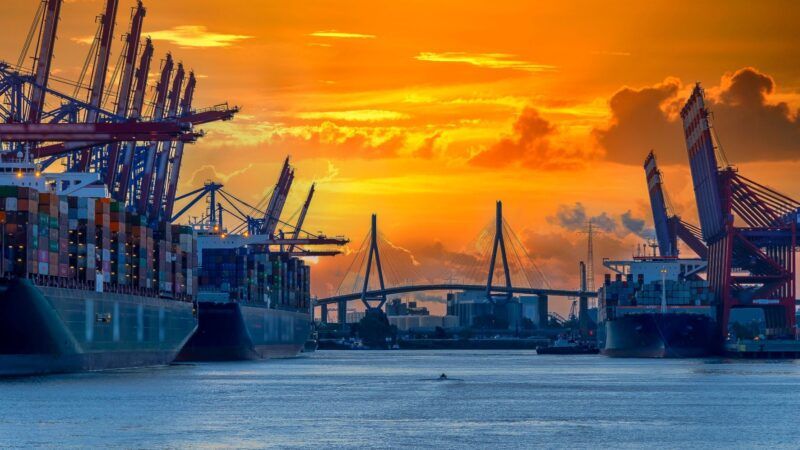
Motorways of the Sea aim to be even more sustainable
Since they were introduced by the European Union in 2001, the Motorways of the Sea have been presented as safer, more sustainable and more competitive short-distance routes. But this commitment has to go further, especially in terms of reducing the environmental impact of the ships that sail them. Ports and shipping lines met in Barcelona to discuss how to make sea transport more sustainable.

The concept of the “Motorways of the Sea“ goes back to 2001, in a European Commission (EC) White Paper on transport policy. From the beginning, one of the purposes was to create freight flows that were more environmentally friendly. Sustainability focuses on fostering intermodal transport, as the externalities of sea transport of goods and passengers are much lower, per ton or person transported, than road transport, which uses more fuel, generates more pollution, more contamination in inhabited areas, congestion on roads and has a much higher mortality rate.
More than a decade and a half after the first steps in the Motorways of the Sea project, the advantages of sea over land transport are clear. In 2018, for example, the Port of Barcelona was estimated to have taken more than 148,000 ITUs (Intermodal Transport Unit – mainly lorries and trailers) off the road. The social benefits of this (such as fewer accidents, less traffic on roads and motorways, less carbon dioxide emitted, etc.) are valued at €129 million.
Shipping lines and ports are working to see what they can do to offer even more sustainable options for these routes. In general, all of the stakeholders agree that it is essential to reduce pollution (from ships along these routes and in port, as well as from port operations and facilities themselves) and the main way to do so is through a firm commitment to innovation.
This desire to make the Motorways of the Sea even more sustainable was the main focus of the Motorways of the Sea in the Western Mediterranean conference held 4 April in Barcelona with the main ports in this area and shipping lines operating in its waters and organized by the Escola Europea Intermodal Transport within the framework of activities of the TransLogMED Project.
Why are ports on the front lines in the fight to limit environmental impact? From the European bodies, Isabelle Ryckbost, secretary general of The European Sea Ports Organisation (ESPO), had an explanation that is important to keep in mind: “Ports play a very important role in the environment, as they combine both commercial and public interests.”
Finishing off her presentation, Ryckbost added, “Even though port authorities aren’t big sources of contamination themselves, ports are where the logistics chains with some of the biggest polluters cross paths.”
One of the leading Mediterranean ports in terms of sustainability is Genoa. At the event in Barcelona, Silvio Ferrando, Marketing and International Business manager of this Ligurian port, noted the importance of “ports taking responsibility for the residential areas around them.” Furthermore, focusing specifically on Genoa, he highlighted that “we are investing in infrastructure to produce energy from renewable sources, like solar and wind power, and on LNG distribution (liquid natural gas).”
The Port of Barcelona shares this desire to reduce its impact on the environment. In this regard, Mercè Conesa, president of the Port of Barcelona, noted that making the Motorways of the Sea more sustainable is one way to fight the serious problem of climate change: “People’s rights are important, but so is respecting and caring for the city.”

Delving deeper into specific measures ports can take, decarbonisation is an important concept for minimising their environmental impact. With this, “we cut power use and greenhouse gas emissions,” explained Camille Bourgeon, representative of the Secretariat of the International Maritime Organisation (IMO).
The head of this body went even further in discussing these measures, stressing that “their importance lies in improving the operational energy efficiency of ships, for example by reducing the time ships wait to enter port.”
Another aspect to take into account is the regional differences among ports in the Western Mediterranean. Oscar Oliver, general director of the Centre for Transportation Studies for the Western Mediterranean (CETMO), pointed to one way to level these differences, focusing on “cooperation between the enclaves in northern Africa and those in southern Europe so that the latter can share their good practices and make the transport routes more sustainable overall.”
For his part, President of the Port of Rome Francesco Maria di Majo stressed the importance of incentives “to help shipping lines invest in the technological improvements available” and gave the specific example of “breaks on fees or rates.”
Shipping companies and ports are working to present even more sustainable options for these transport routes
The shipping lines’ perspective
From the shipping lines’ point of view, the way to improve environmental management of the Motorways of the Sea is by making their ships more fuel efficient, both at sea and in port.
To do so, the heads of major companies consulted also pointed to the importance of innovation, in the same line as the port representatives. Matteo Catani, CEO of Grandi Navi Veloci (GNV), believes it is very important “to forge a deeper relationship with ports to make new technology and solutions feasible,” and also noted that it must go further than declarations of goodwill, “speeding up these processes to reduce the ecological impact in the immediate future.”
Catani also noted that “there will be many challenges, such as speculation and the way fuel supply changes due to regulation,” clearly alluding to the regulation expected for 2020 that will change the fuel used for sea transport. In particular, this law seeks to lower the sulphur levels used in ship fuel. For the head of GNV, these issues are also opportunities to reach the goals set for this new era of the Motorways of the Sea.
![The objective is to reduce pollution, respecting and taking care of the city. [SoCal Snapz Image - By Kevin Pellon]](https://piernext.portdebarcelona.cat/wp-content/uploads/2019/04/SoCal-Snapz-By-Kevin-Pellon.jpg)
Additionally, the Grimaldi Group, through Guido Grimaldi, Corporate Short Sea Shipping Commercial director, highlighted the solutions this shipping line is committed to. Specifically, he highlighted a system of lithium batteries onboard their vessels that “stores power while in route that can then be used by the vessel when it is in port.”
These systems are currently being installed on two of the companies vessels, Cruise Roma and Cruise Barcelona, both of which operate from the Port of Barcelona and the Italian enclaves of Porto Torres and Civitavecchia. To install these improvements, 30 metres must be added to the length of each vessel, for a total of 255 metres. Testing is already being done with Cruise Roma to certify the advantages of this new system.
Plus, Guido Grimaldi noted that both ships will have pollution-control devices (scrubbers). These are one of the most affordable ways to reduce the pollution a ship generates. The combination of this system and the batteries make up the Grimaldi innovation proposal for the Motorways of the Sea.






